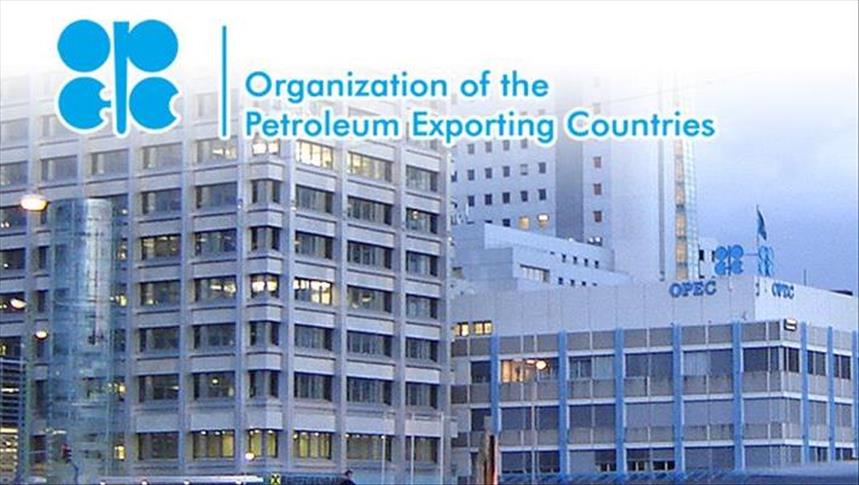OPEC oil strategy rational: BP chief economist
'I would have behaved exactly the same,' Spencer Dale says

New York
NEW YORK
OPEC's strategy of refusing to trim production level to preserve its market share is economically rational, BP’s chief economist said Thursday.
"From a purely economic perspective, I would have behaved exactly the same way they behaved," said Spencer Dale, speaking at the Washington-based Center for Strategic and International Studies where he presented the energy giant’s Energy Outlook for 2035. "What they did makes economic rational sense," he added.
Since mid-2014, OPEC has refused to cut its production level against falling oil prices in order to protect its share in the global market, and allow low oil prices to drive high-cost producers, such as U.S. tight oil, or shale, out of the market.
The strategy has also caused financial and investment problems for major international oil companies, including BP.
"What OPEC has done is entirely consistent with what they did in the past. OPEC's power, as a cartel, stems from the ability to shift supply from one period to another," Dale said.
"It has enormous power to respond to temporary shocks. If there is a temporary fall in demand, it can cut back supply today, knowing that tomorrow, when demand comes back, it can bring that supply back on. Or, if there is a supply outage somewhere, it can increase its supply until that disruption is reduced," he added.
During the 2008-2009 global financial crisis, demand fell sharply within months, from around $145 per barrel to $35 per barrel, a situation that is instructive as the cartel slashed supply to help stabilize the volatile market, he said.
“Now, exactly the same thing is happening to the oil market. Oil demand is falling very sharply, prices have crashed, but there is no financial crisis," Dale added.
Although low oil demand can be regarded a significant factor in the 2009 and 2015 price shocks, the difference between the two is that currently there is additional supply in the global market by a major player.
At the moment, the market is saturated, mostly due to an increased output from tight oil coming in from the U.S.
"Shale is a structural change in the market, and it is not at the marginal side of the cost-curve, but somewhere in the middle of it,” according to Dale. “It seems to me rationally that what OPEC did in response to that is exactly what they should have done -- to maintain its market share.”
While the current glut is estimated to remain until 2020 by many oil analysts, Dale emphasized that OPEC has limited power in permanent shocks, such as the current over supplied market environment.
"Shifting production one month to another does not make much difference due to the market structure," he said, and stressed that if OPEC would cut supply now, this would increase prices, and, in fact, help high-cost producers return to the market.
Stating that when new oil producers came into the market during the 1980s, the cartel reacted in a similar manner as it is currently, he said.
"OPEC hasn't been surprising in its behavior, it is entirely rational. Its power has not changed to smooth temporary shocks," he said. "It will carry on operating to maintain its market share.”
BP's Energy Outlook 2035 predicts OPEC will preserve its current 40 percent market share by 2035, through increasing its oil production by 7 million barrels per day on average until then
Non-OPEC supply is estimated to increase by an average of 11 mbpd by 2035.
Anadolu Agency website contains only a portion of the news stories offered to subscribers in the AA News Broadcasting System (HAS), and in summarized form. Please contact us for subscription options.







